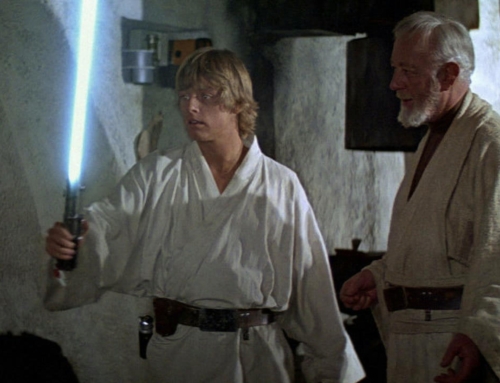Today, I had the good fortune of working on two separate editing projects
- Writing -Editing: a nonfiction book proposal
- Video – Editing: a 30 minute multicamera interview
and I learned a valuable insight.
Editing is the process of removing the fluff that helps us tell our stories.
This fluff, consisting of ums, false starts, poor phrasing, and repetition, ramps us up to say what we really mean. We have to try expressing an idea a few times until it comes out powerfully enough to be artistic. Editing is the art of removing all that is not art.
It takes some time to get going when you are having a conversation, and someone asks you a question that merits the eloquent expression of an idea. Eloquence is rarely achieved the first attempt, though. It can take you a few tries to nail what you really mean. Likewise, with the written word, you need to spend some time arranging your concepts around one another in order to deliver your complicated masterstroke.
Juxtaposing these two editing mediums against one another today, I noticed that each of them involved looking actively for excessive preparations, and eliminating them, so that the final delivery could shine.
I treasured those good turns of phrase, the really great camera shots, the beautiful framing of an idea. I constructed everything else around them, as those false starts helped the authors of the work to culminate in their highest expression. But the fluff, while necessary, hinders the audience from engaging with the central core concept, which they do best by hearing only the best and strongest expressions of the idea.
I once told a member of an old writing group, “Cut first 4 paragraphs from your story. It starts when she grabs her keys and walks out the door.”
She had spent a full page justifying what her story was about, and who was in it, and how they felt, before the story even started. But those four paragraphs were essential for the writer to feel around the new creation she was exploring. As creators, it is necessary for us to create chaff, within which we can find nuggets of brilliance.
If you can present the audience with only the best nuggets, then the editing has been successful.






Leave A Comment